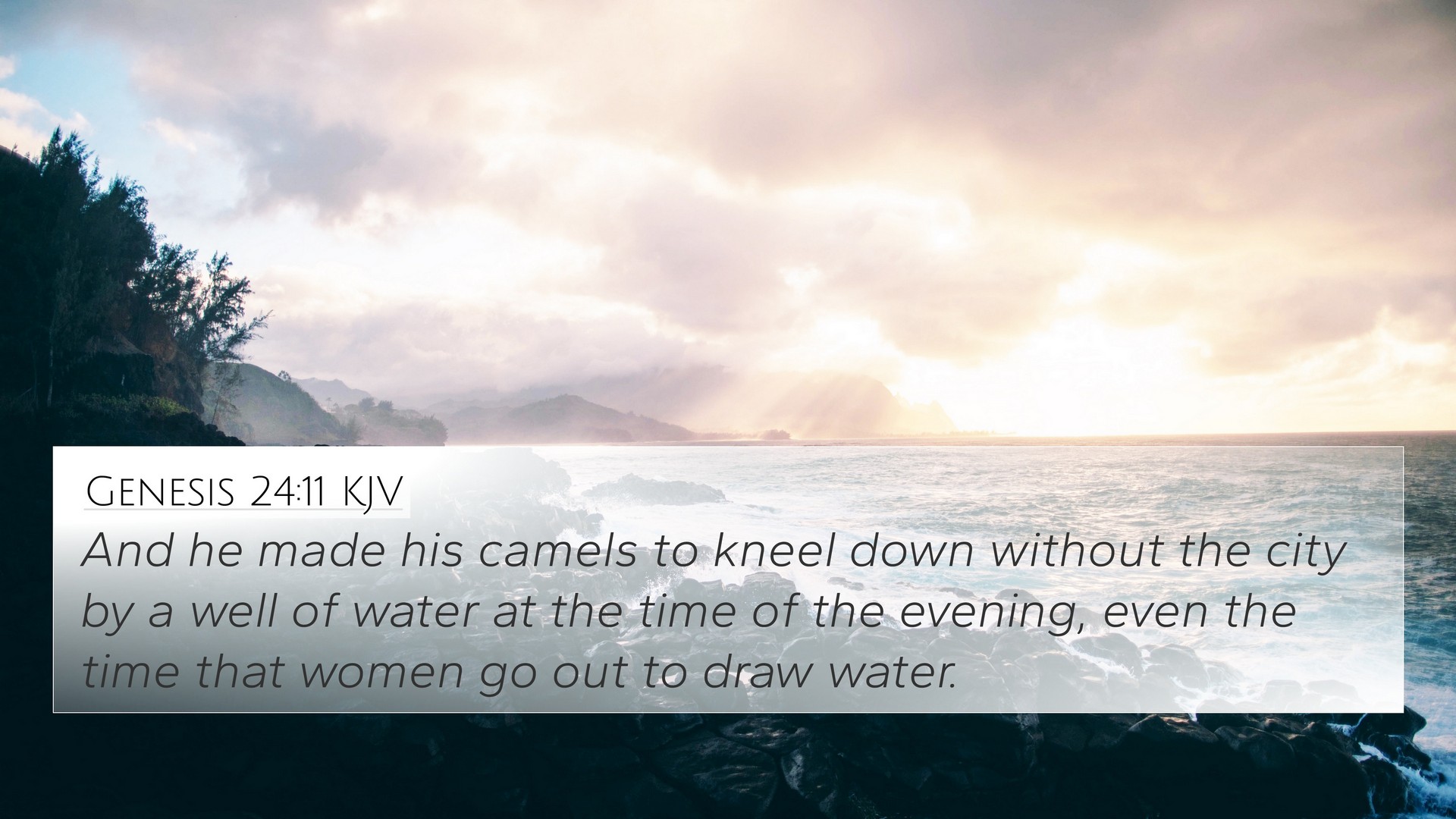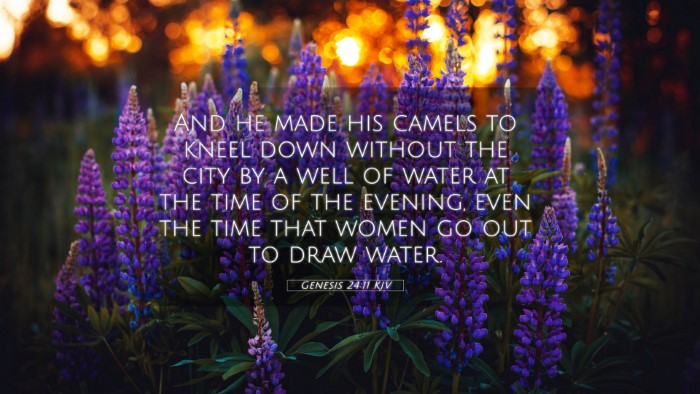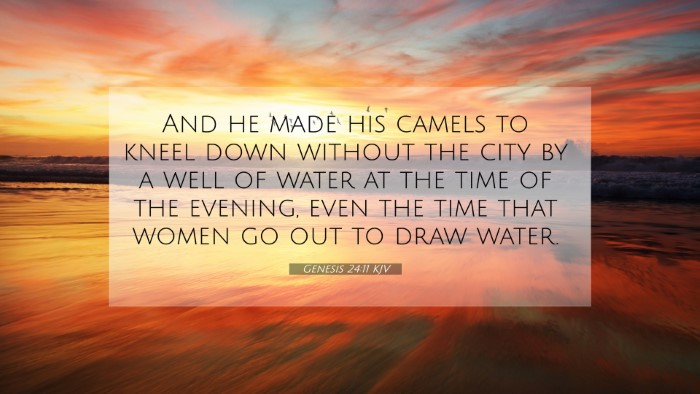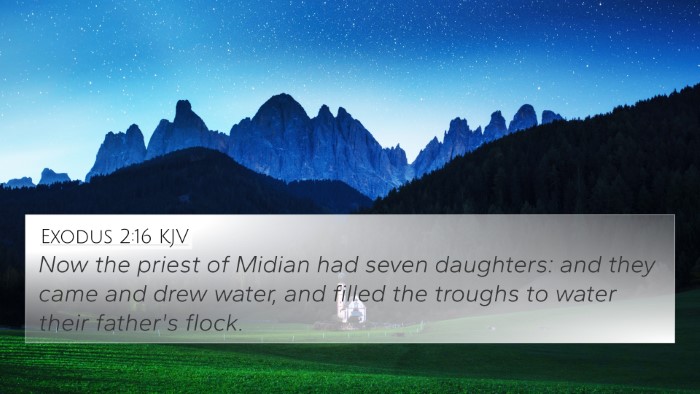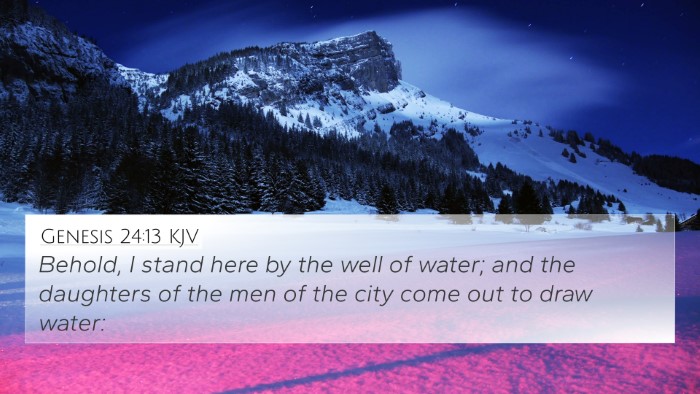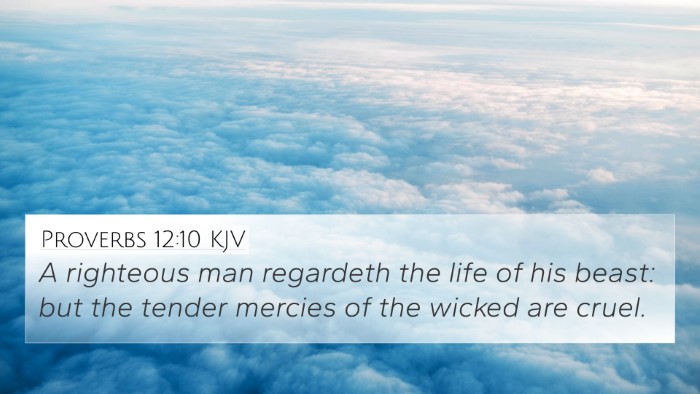Understanding Genesis 24:11
Genesis 24:11 states: "And he made his camels to kneel down without the city by a well of water at the time of the evening, even the time that women go out to draw water."
This verse is part of a larger narrative where Abraham sends his servant to find a bride for his son Isaac. The significance of this verse lies in its context of seeking divine guidance in critical life decisions.
Contextual Analysis
The act of making the camels kneel signifies preparation and respect as the servant approaches a significant task. The well is a pivotal place in biblical narratives, often representing life, sustenance, and divine provision.
Interpretations from Public Domain Commentaries
Matthew Henry's Commentary
Matthew Henry focuses on the servant's reliance on God for guidance. Kneeling camels suggest a moment of prayer and readiness, highlighting the importance of physical posture in seeking God's favor. The timing at evening emphasizes the routine of women drawing water, illustrating the servant's strategic planning in fulfilling Abraham's request.
Albert Barnes' Commentary
Albert Barnes emphasizes the cultural significance of the well and women drawing water. The servant's action signifies not just obedience but a parallel to how God provides couples—through ordinary means and events. He notes that the well serves as an intersection of community life and divine orchestration.
Adam Clarke's Commentary
Adam Clarke offers insights into the geographical and historical significance of the well. He explains that the servant's arrival at the well at a strategic time reflects divine providence. The well serves as a metaphorical gathering place for destiny and connections, reiterating the theme of God's mastery over circumstances.
Cross-References
Genesis 24:11 can be cross-referenced with the following verses:
- Genesis 16:7 - The well as a place for divine encounters.
- Exodus 2:16 - Moses meets Zipporah at a well, showing the significance of wells in marital narratives.
- John 4:7 - Jesus speaks to the Samaritan woman at Jacob's well, linking themes of water and relationships.
- Nehemiah 2:13 - Wells symbolize significant places where decisions are made.
- Proverbs 18:22 - "He who finds a wife finds what is good"; relates to the servant’s quest for Isaac’s bride.
- Isaiah 12:3 - "With joy you will draw water from the wells of salvation"; water as a source of joy and sustenance.
- Psalm 54:1 - Shows the reliance on God akin to drawing water from a well.
- Matthew 7:7 - Relates to seeking and finding, akin to the servant’s mission at the well.
- Luke 1:63 - Names given during divine encounters, akin to the name of Isaac through divine will.
- Acts 8:35 - Philip interprets scripture at a pivotal location, linking to the presence of the Spirit in guiding decisions.
Thematic Connections
The themes of divine guidance, obedience, and the vital role of prayer are evident. The act of kneeling and waiting for a sign is a reiteration of principles of faith where believers seek God's will in decision-making processes.
Applying the Understanding
This verse encourages believers to approach significant decisions with prayerful readiness, trusting God's providence. It illustrates how ordinary activities, like drawing water, can lead to extraordinary outcomes when aligned with divine intent.
Concluding Thoughts
Genesis 24:11 serves as a reminder of the connection between daily actions and divine orchestration. As we navigate through life, the principles observed in this narrative encourage seeking God through prayer, being observant of circumstances, and recognizing that wells symbolize places of nourishment, both physically and spiritually.
SEO Keywords
This analysis utilizes a number of keywords pertinent to understanding Bible verse connections and cross-referencing:
- Bible verse cross-references
- Connections between Bible verses
- Linking Bible scriptures
- Comparative Bible verse analysis
- Bible verses that relate to each other
- Cross-referencing Biblical texts
- Thematic Bible verse connections
- Bible verse parallels
- Scriptural cross-referencing
- Inter-Biblical dialogue
